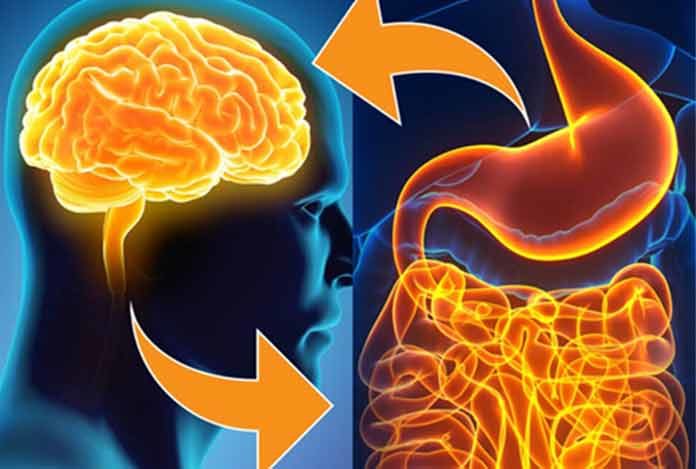
Most of us must have experienced that hollow, fluttery feeling or butterflies in our stomach while being anxious or nervous for some reason. This directly points towards one thing – how deeply our mind and emotions are connected to our gut.
According to Deepak chopra, with the new researches going on, everywhere in the world, we can now redefine the term wellness as the “whole system.” This removes all the barriers between the mind and gut, the microbiome and every cell in our body. Deepak Chopra hereby gives you some tangible proofs to support the existence of a strong link between the two major organs of our body – the brain and the gut.
The Strong Connection
A healthy gut contains a lot of different strains of bacteria that vary from person to person, and this diversity helps maintain the overall wellness of an individual. A change in the microbiome of the gut can result in the development of diseases and illnesses. Throughout the life, our microbiome turns into a highly vulnerable entity. And for this reason, whenever we get exposed to the toxins, chemicals, stress, sudden diet changes, and even exercise regimen, the microbiome of our gut fluctuates accordingly, leading to either beneficial or harmful effects.
Since the time of our birth, our body has been consistently working on this intimate, strong and unbreakable link between our brain and gut, including all the other organs like the pancreas, stomach, liver and intestines that are present inside our body cavity. Collectively, our gut along with other organs are called the “enteric nervous system”, which works on its own while simultaneously communicating with the Central Nervous System (CNS). Maybe, due to this, our gut is also known as “the second brain.”
This whole connection is being carried out in the entire body via one of the 12 cranial nerves – the vagus nerve. This enteric nervous system consists of almost 200-600 million neuron cells.[1]
All the colonies present in our gut, rapid dietary changes and the modern lifestyle modifications are interlinked with our immune system directly.
Hence, it is important to keep a watch on whatever we eat and our lifestyle patterns.[2]
If your diet is poor, comprising mostly of junk, fast foods and processed foods products, then it might trigger some harmful changes in your body. Also, if your diet lacks probiotics and fiber content, you are on so many antibiotics for too long, or even if you don’t consume fermented foods like kefir and yogurt; your microbiome will get affected. Besides, experiencing constant stressed out feeling can also alter the beneficial microbes in the gut and might even reduce their numbers or can make the environment overcrowded by increasing the number of bad bacteria. All these factors simply increases your risk [3] of developing chronic stress disorders, depression, anxiety, mood disorders as well as some serious infections.
Even though you can check your microbiome via laboratory examinations of samples from saliva, blood, urine and stool, but this will not give you a complete picture of the entire microbiome inside your gut. However, recent advancements in medical sciences can now help you get a full picture of your digestive tract for assessing the microbiome to predict and prevent various ailments.
Also, these new viable advancements could help understand the complex link between the brain and the gut; thus, having the potential to revive the currently established concepts of health and wellness.
Factors That Can Worsen Your Gut Microbiome
Emotions: As already stated, there is strange but strong relation between our emotions and the gut. Therefore, psychological factors have a direct impact on our physical and physiological factors like body movements, the on and off contractions in the gastrointestinal (GI) tract, pain, inflammation and various bowel symptoms. Being emotionally stable will greatly improve the health of the gut.
Stress: A lot of environmental factors can contribute to increased levels of stress and release of stress hormones in the bloodstream. These factors include imbalanced diet, sedentary lifestyle, physical overexertion, disturbed sleep cycle, negative thought process and more. These factors induce unfavorable changes in relation to:
- Gastric secretion
- Food movement in the digestive tract
- Inflammation
- Blood flow
- Intestinal permeability
Poor Diet: Having poor eating habits has a direct involvement in worsening your gut health. Beneficial microbes in the gut help in a lot of mechanisms like production of several essential vitamins like K and B along with some good fats. They enhance the immune system, aids in digestion of the food and helps produce precursors to the messengers of the whole body system. Improving your diet can save you from a lot of negative changes that may damage your gut health and overall wellness.
Mental health: A disturbed mental status can badly affect your gut and its health. Indulging in activities like meditation, yoga and deep breathing exercises can help reduce body aches, improve the symptoms, reduce stress, and can prevent changes in gene expressions, contributing to decreased inflammation.
How Can You Improve the Gut Health?
Being aware of your gut health is first and foremost step to ensure gut health, followed by knowing what changes you need to bring about as well as the most favorable conditions required to restore its health.
The most acceptable and widely advised protocol is to follow the ‘five Rs’ rule:
1) Remove: Get rid of foods that might invite health issues, and harmful microbes and parasites like Candida.
2) Reseal: Store whole-grain foods in seal-packed containers or bags. Cook your meat-based foods on a slow flame and try to incorporate herbs and plant-based products that do not contain starch. Also, store organ meats and cooking oils like olive oil, coconut oil and clarified butter in air-tight containers.
3) Replace: Keeping a check on expiry dates is very important. Even the much-needed nutrients like betaine, minerals and vitamins come with an expiry date. Hence, it is important to replace such foods accordingly.
4) Recolonize: When using foods based on prebiotics and probiotics, fermented foods, try to make sure you consume them fresh. These products can be remade by re-fermenting the new ingredients.
5) Reconnect: Managing your stress and anxiety will help your body to calm down, rest and enhance your digestive system. And thus, improving your overall gut health.
Quick Tip: Exercises or activities that includes body movements, moderate exposure to sun, meditation and drinking clean and purified water will help you clear your hazy and tired brain and boost a healthy gut microbiome.










